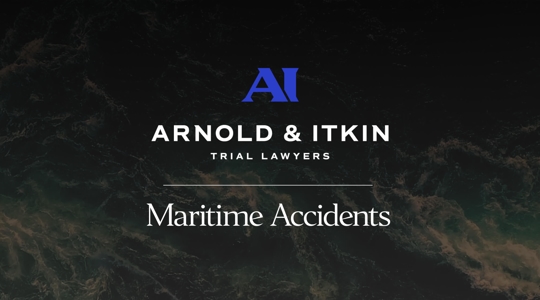Death on the High Seas Act (DOHSA)
Maritime Death Lawyers with Offices in Houston, Dallas & Baton Rouge
The Death on the High Seas Act (DOHSA) is an admiralty law created in 1920 to permit recovery of damages by family members of a seaman killed in international waters or a wrongful death situation. Today, the DOHSA has extended to protect cases where an airline disaster over the high seas occurred beyond 12 nautical miles of the territorial limit of U.S. waters. DOHSA was created to hold employers accountable for the safety measures required for a safe working environment. Seamen and harbor workers are required to complete hazardous tasks daily; their lives depend on the ability of their employers to create a safe work environment.
When a maritime employer's irresponsibility or negligence leads to the death of a worker, the worker's family can file for compensation under the Death on the High Seas Act.
Abogados de lesiones por accidentes marítimos y en alta mar en Houston
Hazards of Maritime Work
Per the Occupational Safety and Health Administration, the rate of injuries for shipyard work is more than twice that of the construction industry. This high injury rate makes it one of the most dangerous occupations.
Employees on offshore sites face dangers including:
- The possibility of falling overboard
- Exposure to fumes in enclosed spaces
- Chemical burns
- Powerful electrical shocks
- Explosions of machinery
- Piracy
Due to hazards such as these, shipyard workers need to understand their rights under maritime law. If the death of your loved was the result of or related to any of these kinds of accidents or an accident unlisted here, it is vital that you understand the DOHSA and how it can help you. Additionally, it is essential to hire expert maritime legal counsel to navigate this act and use it to at least partially provide recovery for your significant loss.
